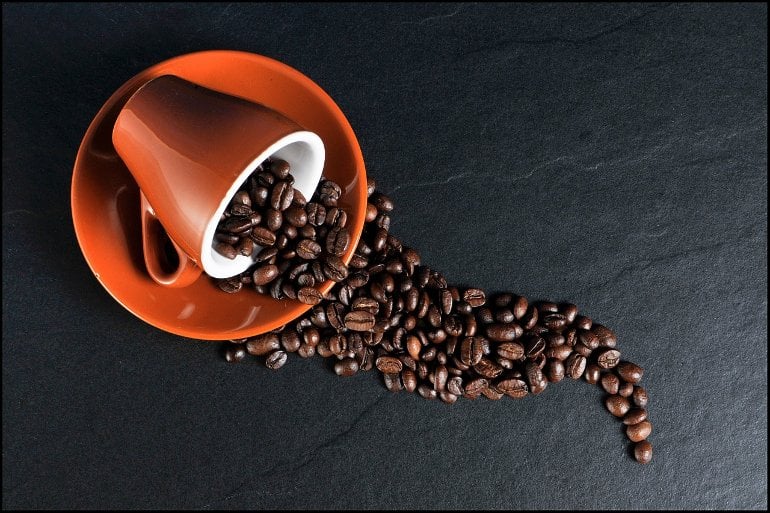Summary: Not only do adult smokers with schizophrenia and bipolar disorder consume the most caffeine, but they are also most at risk of adverse health effects.
Source: Rutgers University
Americans are drinking more caffeinated beverages than ever before, but Rutgers researchers found one group that tops the charts in caffeine consumption: adult smokers with mental illness.
In a study published online ahead of print in the January issue of the journal Psychiatry Research, Jill M. Williams, director of the division of addiction psychiatry at Rutgers Robert Wood Johnson Medical School, found not only do adult smokers with bipolar disorder and schizophrenia drink the most caffeine, they are at the highest risk of negative health consequences.
“Caffeine is generally considered safe and even has some health benefits,” said Williams. “But we just don’t understand the cognitive and psychiatric effects of high caffeine intake, especially among smokers with mental illness.”
Caffeine is one of the most widely used psychoactive drugs in the United States, with the main effects increased alertness, attention and vigilance. While it’s considered safe for most healthy adults to consume up to 400 milligrams of caffeine per day – the equivalent of about four cups of brewed coffee – consuming more than 600 milligrams isn’t recommended and can lead to anxiety, insomnia, excess stomach acid and heartburn.
Little is known about caffeine’s influence on executive functions, such as reasoning and decision making, and the studies that have been done have mostly included healthy adults without mental illness, Williams said. Even less is known about how high caffeine intake may impact psychiatric symptoms or sleep in adults with serious mental illness who smoke.
To address these gaps, Williams and colleagues from the Rutgers Department of Psychology and the University of California San Francisco School of Medicine analyzed data from 248 adult smokers recruited during a previous study. Participants were either outpatient smokers with schizophrenia or bipolar disorder or from a control group with no psychiatric diagnoses. All participants were pack-a-day smokers.

At the beginning of the study, participants completed surveys on smoking history, caffeine use, physical health and psychological symptoms. The researchers also collected blood samples to measure serum caffeine levels.
They found caffeine intake was highest among participants with bipolar disorder, followed by adults with schizophrenia. The control group consumed the least amount of caffeine.
Williams said there are several theories to explain the relationship between caffeine intake and mental illness. One is a well-established association between caffeine and smoking: People with mental illnesses smoke at rates two to three times higher than the general population, and because the tars in cigarette smoke increase the metabolism of caffeine, it takes more caffeine to achieve stimulating effects.
Another theory links high caffeine intake to adenosine receptors and supports a possible self-medication effect among people with mental illness, said Williams. People with mental illnesses also seem to have vulnerabilities to all types of addictive substances, putting them at higher risk for excess intake and more negative consequences. Additionally, the researchers found evidence that mood is linked to caffeine intake, especially bad mood.
Each of these explanations warrants further investigation, Williams said.
“Today, people consume huge amounts of caffeine in more concentrated forms – like energy drinks or double shots of espresso – far more than when our participants were surveyed,” she said. “And yet, the effects of high caffeine intake remain widely understudied. This is particularly true for people with mental illness.”
About this mental health and caffeine research news
Author: Patti Zielinski
Source: Rutgers University
Contact: Patti Zielinski – Rutgers University
Image: The image is in the public domain
Original Research: Open access.
“Caffeine levels and dietary intake in smokers with schizophrenia and bipolar disorder” by Jill M. Williams et al. Psychiatry Research
Abstract
Caffeine levels and dietary intake in smokers with schizophrenia and bipolar disorder
Caffeine is one of the most widely used psychoactive drugs in the United States. High rates of caffeine use have been observed in adult smokers as well as those with serious mental illness.
The current secondary analysis aimed to extend previous findings demonstrating high caffeine intake in schizophrenia by examining dietary intake of caffeine and serum caffeine levels in outpatient smokers with schizophrenia (SCZ), bipolar disorder (BP) and control smokers with no psychiatric diagnoses (CON).
Two hundred forty-eight adult smokers (SCZ=80; BP=80; CON=88) were included in the current study. Adult smokers with schizophrenia, bipolar disorder, and no psychiatric diagnoses were 40.85 (SD = 11.90) years old on average and all participants were current smokers (∼20 cigarettes per day).
Twenty-four hour self-reported caffeine intake (in mg) was highest among individuals with bipolar disorder (median=195.3), followed by adults with schizophrenia (median=155.0) and controls (median=131.7). Participants with bipolar disorder also had the highest serum caffeine levels (in ng/ml; median=1725), followed by those with schizophrenia (median=1194) and controls (median=613.2).
These results provide additional evidence of high caffeine intake among adults with schizophrenia and extend findings by identifying even higher rates of caffeine use in those with bipolar disorder.
The current study suggests that caffeine intake is higher among subgroups of patients with serious mental illness.






